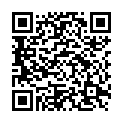|
|
|
| Module code: EE1636 |
|
|
1V+3LU (4 hours per week) |
|
5 |
| Semester: 5 |
| Mandatory course: no |
Language of instruction:
German |
Assessment:
Preparation of lab protocols and presentation of a selected lab report. The evaluation of the module is Pass/Fail
[updated 22.05.2023]
|
EE1636 (P212-0089) Energy system technology / Renewable energies, Bachelor, ASPO 01.10.2022
, semester 5, optional course, category 2
|
60 class hours (= 45 clock hours) over a 15-week period.
The total student study time is 150 hours (equivalent to 5 ECTS credits).
There are therefore 105 hours available for class preparation and follow-up work and exam preparation.
|
Recommended prerequisites (modules):
EE1105 Renewable Energies
EE1301
[updated 02.05.2023]
|
Recommended as prerequisite for:
|
Module coordinator:
Prof. Dr. Marc Deissenroth-Uhrig |
Lecturer:
Prof. Dr. Marc Deissenroth-Uhrig
Dr. Olivia Freitag-Weber
[updated 02.05.2023]
|
Learning outcomes:
After successfully completing this module, students will be able to understand and experimentally verify the basic physical effects of photovoltaics and wind energy technology. In addition, at the end of the module, they will be able to determine and classify uncertainties in measurement results themselves, and to present the results of experiments in a scientific manner.
[updated 22.05.2023]
|
Module content:
Topics covered include:
- Basic knowledge of semiconductor properties (photovoltaics)
- Basic knowledge of aerodynamics (wind energy)
- Dealing with type A and B measurement uncertainties
- Determining U-I characteristics of PV modules
- Using a wind tunnel
- Measuring drag and buoyancy forces of different objects
[updated 22.05.2023]
|
Teaching methods/Media:
- Lecture
- Lab exercises
[updated 22.05.2023]
|
Recommended or required reading:
Bornath, Thomas; Walter, Günter (2020): Messunsicherheiten – Grundlagen. Wiesbaden: Springer Fachmedien Wiesbaden
Bornath, Thomas; Walter, Günter (2020): Messunsicherheiten – Anwendungen. Wiesbaden: Springer Fachmedien Wiesbaden
Lecture notes
[updated 22.05.2023]
|


